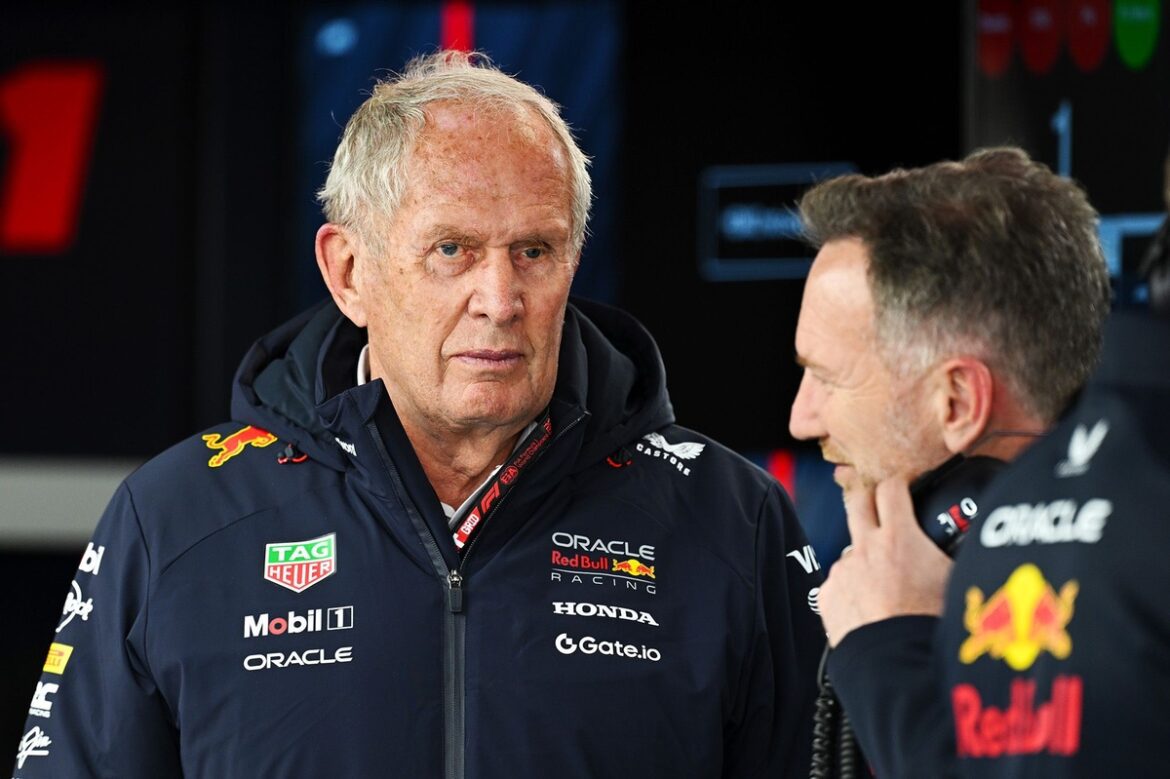Red Bull Racing Faces Challenges at Miami Grand Prix: Analyzing the Performance of Max Verstappen and McLaren
In the world of Formula 1, the stakes are always high, and the pressure to succeed is immense. The recent Miami Grand Prix showcased the intense competition within the sport, particularly highlighting the struggles faced by Red Bull Racing. Team advisor Helmut Marko expressed disappointment regarding the team’s performance during this event, stating that their race pace was more disheartening than anticipated. Max Verstappen, who had secured pole position, finished in a disappointing fourth place, trailing significantly behind the front-runners.
The race began with a promising start for Verstappen, who managed to fend off Lando Norris initially. However, as the race progressed, both McLaren drivers showcased their superior pace. Oscar Piastri and Norris swiftly overtook Verstappen, achieving a remarkable 1-2 finish for McLaren. This outcome underscored the challenges Red Bull faced in maintaining competitive speed on the track.
Verstappen’s performance was hindered by a lack of grip, which resulted in him losing approximately seven-tenths of a second per lap to the McLaren duo. The reigning world champion found himself unable to contend with the pace of the McLaren drivers, who appeared to have a clear advantage. Adding to Verstappen’s woes was a strategic misstep during the race when George Russell from Mercedes executed a timely pit stop under a virtual safety car, allowing him to leapfrog Verstappen and secure third place.
Despite switching to harder tires for the second stint, Verstappen struggled to overtake Russell, ultimately finishing the race 40 seconds behind Piastri, who celebrated his third consecutive victory. Marko’s comments post-race reflected the team’s concern regarding their performance. He noted the stark reality of Red Bull’s current standing in terms of race pace, acknowledging the significant gap to McLaren.
The analysis of the race revealed that Red Bull’s performance was not just a fluke; it was a consistent issue that needed addressing. Marko’s candid admission highlighted the urgency for the team to enhance their speed. He stated, “The main conclusion is we are too slow,” emphasizing the need for immediate improvements. This sentiment resonates deeply within the racing community, where performance metrics are continuously scrutinized.
Looking ahead, Red Bull Racing is expected to introduce further upgrades at the next race in Imola, including a new floor for Verstappen’s car. However, Marko expressed skepticism about whether these upgrades would be sufficient to close the gap to McLaren, particularly given their recent dominance. He recognized that overcoming the performance advantage demonstrated by McLaren would be a formidable challenge, especially on tracks where tire management plays a critical role.
The Miami Grand Prix served as a stark reminder of the unpredictable nature of Formula 1. Teams invest significant resources into research and development, striving to stay ahead of their competitors. However, the results on the track can sometimes diverge significantly from expectations. Red Bull’s situation is a testament to the fact that even established teams can face unexpected hurdles, requiring them to adapt and innovate continually.
As the season progresses, the focus will undoubtedly shift to how Red Bull Racing can rebound from this setback. The introduction of new components and strategies will be crucial for the team as they aim to regain their competitive edge. The pressure to perform is relentless in Formula 1, and teams must navigate the complexities of technology, driver skill, and race strategy to achieve success.
The rivalry between Red Bull and McLaren is not just a battle for points; it also represents a clash of engineering prowess and racing strategy. McLaren’s recent resurgence has reinvigorated the competitive landscape, making every race an exciting spectacle for fans and teams alike. The dynamics of the championship will continue to evolve as teams refine their cars and strategies, all while dealing with the inherent unpredictability of racing.
Looking at the broader implications, the Miami Grand Prix also highlighted the importance of adaptability in Formula 1. Teams that can quickly identify areas for improvement and implement effective solutions are often the ones that thrive. Red Bull Racing’s ability to innovate in response to their disappointing performance will be crucial in the upcoming races. The challenge lies not only in making technical adjustments but also in fostering a positive team environment that encourages collaboration and creativity.
As the next race approaches, fans and analysts alike will be closely watching Red Bull’s performance. Will the team manage to close the gap to McLaren, or will they find themselves grappling with similar issues? The answers to these questions will shape the narrative of the Formula 1 season and influence the strategies employed by teams across the grid.
In conclusion, the Miami Grand Prix was a pivotal moment for Red Bull Racing, one that exposed vulnerabilities in their performance and highlighted the fierce competition in Formula 1. The team’s commitment to addressing these challenges will be critical as they prepare for future races. The journey of improvement is a continuous one, and in the fast-paced world of Formula 1, every second counts. As the season unfolds, the excitement and uncertainty of racing will keep fans on the edge of their seats, eagerly anticipating how the teams will tackle the challenges ahead.
